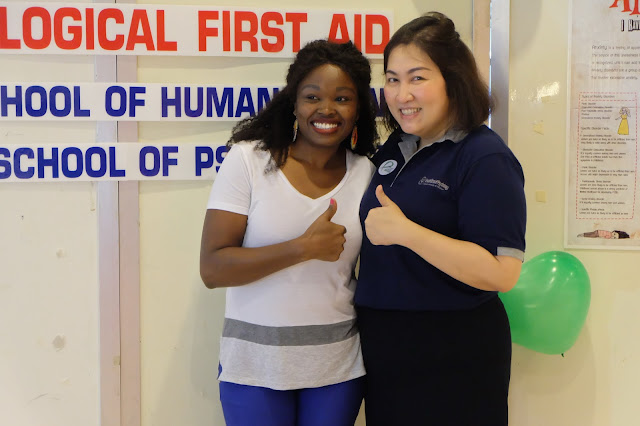Assumption University Graduate School of Psychology and Assumption University Counseling Services held the annual World Mental Health Day at the University's Bangna Campus on the 13th of October 2016. The goal of this event is to spread awareness on the importance of mental health and help reduce stigma so that people can have access to mental health care as soon as possible and be able to improve their lives.
This year's theme "Psychological First Aid" is very timely in connection to the various crisis and challenges we face in our world today. And although going through difficult as well as confusing times is but very common in our lives, this should not hinder us from living our lives to the fullest. Mental health care is important because it helps us make better choices and supports us become resilient in times of crisis.
As school counselors we are also aware that one of the most challenging part of a person's life is going through the demands and pressure of being a student in keeping up with the University's expectations and standards. And although a great number of students are coping well with these demands and have maintain a positive outlook in life, others need support specially with learning how to adapt positive coping skills.
Thus, giving importance to the mental health of the students is important so that they can be guided through self discovery and become aware of their strength as individuals and be able to positively cope with the challenges they face.
The annual Mental Health Awareness Day provided an opportunity for students and non-student participants a chance to an open conversation about mental health. And the school psychologist together with the interns provided information on the common mental health problems such as anxiety, stress, positive psychology as well as other issues students face in their daily life.
Different types of psychology testing were also available such as the Career Interest Survey, Right/Left Brain Dominance Test, the VAK Learning Style Self-Assessment Questionnaire, and the Cohen Perceived Stress.
The counseling psychologist and the interns also provided information on the test results and invited the students and participants to visit the school counseling center to talk more regarding their concerns and the benefits of mental health care.
The event turn out to be a success and a huge number of students came and took the psychological test and also participated in an interactive dialogue with the counselors.
The event was also graced and honored by the presence of Bro. Dr. Bancha Saenghiran, President-Rector of Assumption University of Thailand. Bro. Bancha shared his insights about life and also inspirational thoughts for a better life.
The event was made possible because of the support and leadership of the graduate school of psychology students, faculty and staff, Assumption University Suvarnabhumi Campus staff and the Assumption University Counseling Center Services interns.
Lastly, a peaceful and balance life is possible. And know that help is always available. It is very
important that you seek professional mental health care and know that there is
dignity in reaching out for help. Let me encourage you to talk to your psychotherapist or counselors about your concerns and learn more about the
importance of mental health in your life.

































